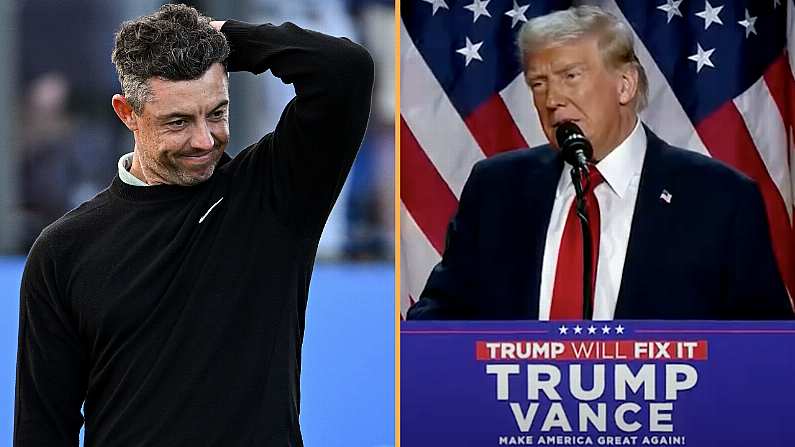There are only three occasions in history when an Olympics has had to be postponed - and on each of those times it was because of a World War. The outbreak of the Zika virus is unlikely to postpone the upcoming Rio Olympics - but it is definitely leading to the question of whether it should.
What is the Zika Virus?
Zika fever is an illness caused by the Zika virus that is transmitted via mosquitos. To the vast majority of people, the symptoms are quite tame. Between 60-80% of people who are infected with the virus do not show any symptoms at all. It can be passed from mother to an unborn child, and there are two recorded cases where it was transmitted through sexual intercourse.
Those who do typically present after three - 12 days. Symptoms include conjunctivitis, fever, rash, and joint pain. Symptoms generally only last for between two to seven days. It rarely requires hospitalisation, and there have been no recorded deaths from the virus.
The main problem with the Zika virus is the effects that it has on pregnant women and their unborn child. The outbreak of the Zika virus in Brazil has coincided with an increase of babies born with microcephaly. After some research, CDC scientists have concluded that there are enough links between the virus and problems in infants - including eye defects, hearing loss, and impaired growth.
As recently as April, the World Health Organisation were suggesting that there is likely to be a link between the Zika Virus and Guillain-Barré syndrome. Guillain-Barré syndrome is an auto-immune disease that affects the nerves. Guillain-Barré can affect the nerves that control muscle movement, or the neurons that control sensory signals. Affected individuals tend to experience muscle weakness and a decreased or loss sense of certain sensations like pain, temperature, or touch.
Zika Virus Olympics: Will the Olympics be moved from Rio?
There is a growing movement from leading scientists to move the Olympics from Rio. Over 150 global health experts are calling on WHO and the IOC to do something, claiming if the games aren't moved it will be remembered as "The Olympics of brain damage".
WHO have so far resisted calls to attempt to move the games, with their reasoning being that the spread of the virus would not be altered if the Olympics were held somewhere else.
Other leading experts have since moved to agree with WHO, with British specialist in tropical medicine Dr. Jeremy Farrar saying:
The numbers travelling to and from Brazil for the Games is likely to account for about 0.25% of world travel. That does not pose a sufficient risk of spreading the disease in my view.
Farrar thinks that if the Olympics is halted, postponed, or cancelled it would lead to major logistical issues trying to get other worldwide gatherings cancelled, like the annual Muslim pilgrimage of Hajj.
Novak Djokovic is one leading tennis star likely to be aiming for Olympic gold who has called the idea of postponing the games as "unthinkable". He admits he isn't an expert, but he wants the games to go ahead, via BBC:
Somebody has passed me the information that a significant amount of scientists have come up with a statement that it's not safe. I need to get informed more so I can speak more in detail about it.
Many athletes and people have already planned in advance and so many people have already planned their trips and accommodation in Rio.
But we should not only think about people coming to Rio. How about those people living there? I think we have to look from different perspectives in order to make a right conclusion.
How can it affect the Olympics if it stays in Rio?
The outbreak is Brazil is already causing some athletes to reconsider whether they want to travel in the first place. The most high profile cases are happening in golf where Australians Marc Leishman and Adam Scott cited the Zika virus as the reasons why they weren't going to participate in Rio; whilst South African Louis Oosthuizen withdrew citing similar concerns.
After spending months trying to decide whether to represent Ireland or Great Britain, Rory McIlroy admitted that he is concerned about travelling to Rio because of the virus.
In a column with the Irish Times, Shane Lowry admitted that the virus is the talk of the locker-room on tour, and that most golfers don't have enough information about the virus.
The concerns from the golfers lean towards those young players looking at starting a family soon, and do not want to risk contracting the virus.
Even for spectators coming to Rio for the games, getting thousands of people to condense into one area is always conducive for spreading disease.
What is being done for the Olympics?
One way the IOC are trying to combat Zika is by promoting safe sex. Every Olympics, condoms are provided to athletes. Rio will see the record number of condoms provided (450,000 - compared to 150,000 four years ago which was also record breaking) - in an attempt to cut down on the virus being sexually transmitted.
Travel advice for spectators
WHO is recommending the following steps for combating the Zika Virus at the Olympics:
- Get relevant vaccines for Rio - flu, yellow fever, Hep A, Typhoid Fever.
- Wear long sleeved clothes, and cover the body as much as possible
- Use an insect repellant containing DEET (25-50%) or picaridin (20%) which are safe in pregnancy.
- Choose air-conditioned accommodation (where windows and doors are usually kept closed to prevent the cool air from escaping, and mosquitoes cannot enter the rooms).
- Avoid visiting areas in cities and towns with no piped water or poor sanitation (ideal breeding grounds of mosquitoes), where the risk of being bitten by mosquitoes is higher.
- Practise safe sex, or abstain from sex.












